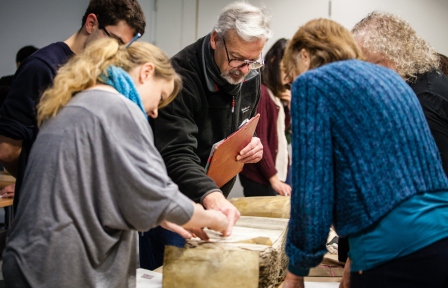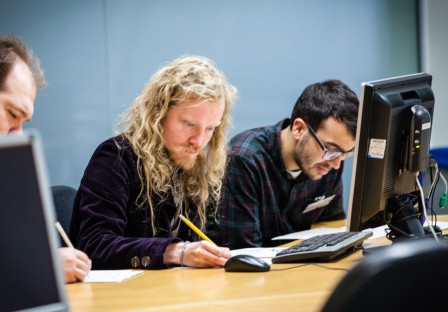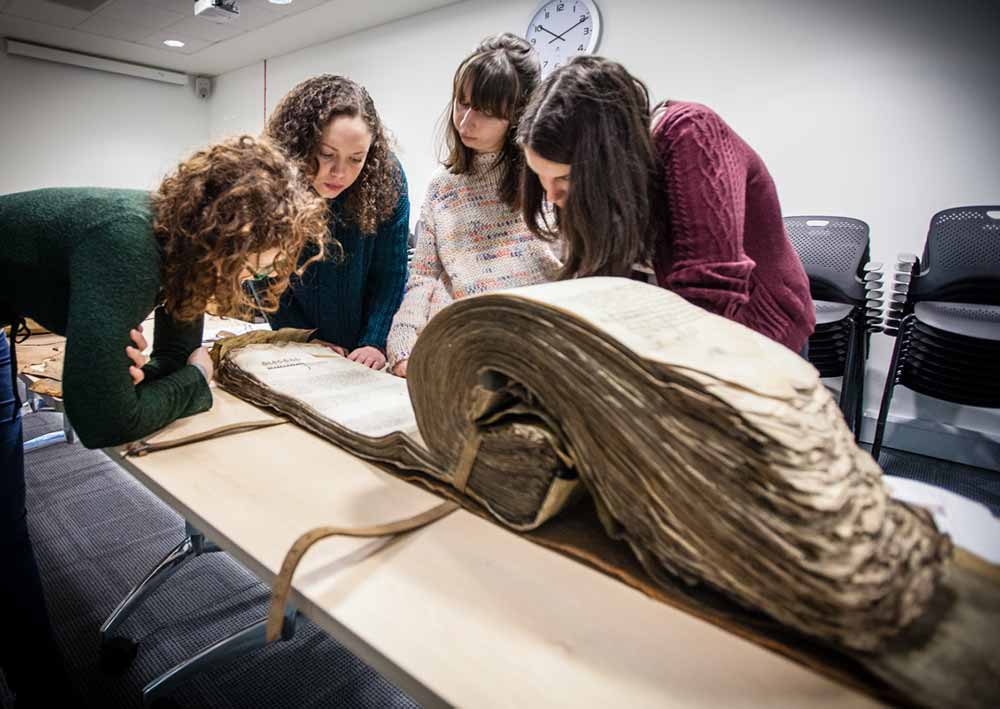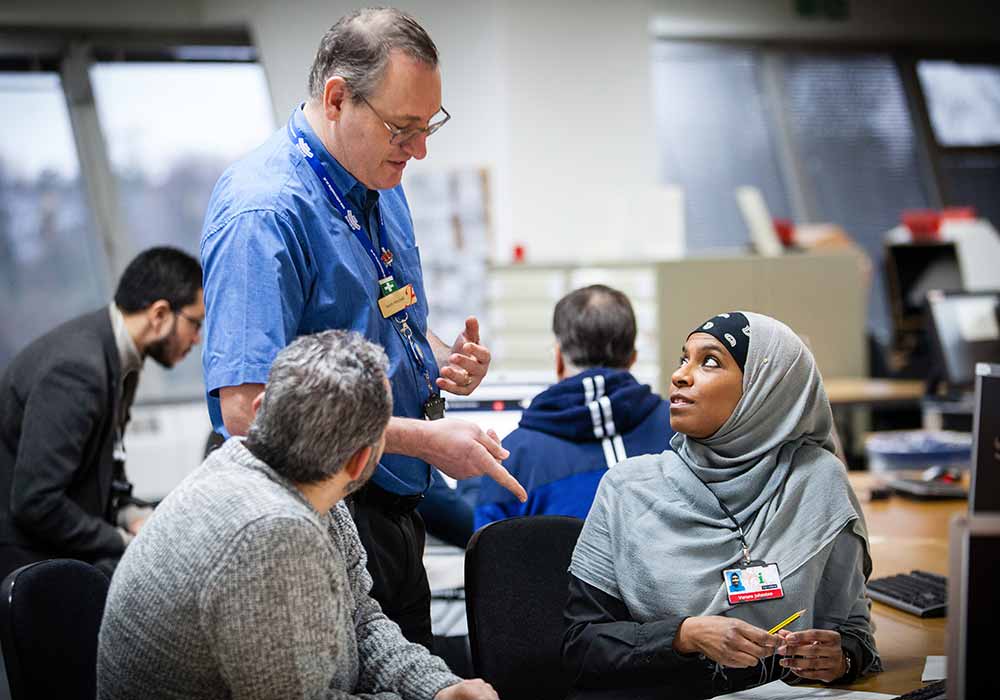
Early modern workshop exercise using records from the Court of Common Pleas
Many a postgraduate student, particularly those who decide to do doctoral research, have had to endure the witty comments of friends and family members about being a perpetual student, desperately clinging on to the comfy surrounds of university life.
But academia is tough. Current PhD students are expected to complete an 80,000–100,000 word thesis, attend and organise conferences, gain a teaching qualification, and ideally publish – all within three years and with no guarantee of employment or financial reward at the end.
In this high pressure environment of targets and deadlines, there is a fear that the heart of a postgraduate degree – the research – is getting sidelined, with students losing key skills in using archives and special collections.
PAST: Postgraduate Archival Skills Training
To tackle this issue, we launched our Postgraduate Archival Skills Training programme (PAST) in 2015. Now in its second year, the training aims to provide students with the skills and knowledge they need to use archival sources, both here and at other institutions. In doing so, the aim is for students to improve the overall quality of their academic research and consequently their job prospects both in the academic world and further afield.
The PAST programme is set out over three levels:
- Level 1: introduction day
- Level 2: skills and methodology workshop
- Level 3: records workshops
Each of these is offered in one of four research areas that reflect the structure of our records and our specialist teams: medieval (1086-1509); early modern (1509-1782); modern Britain (1782-present); and modern overseas (1782-present).

Student doing an exercise on online resources
Skills and methodology workshops
Most recently, in January we held the 2015-2016 programme level two skills and methodology workshops. These events provide students with the essential skills needed to use the archives and records in their field. Sessions include using online resources and paper-finding aids, with Latin and palaeography for the earlier researchers, and registers and indexes for those using the records of modern government departments.
We were thrilled to welcome over 40 students from universities across the country to these workshops. Here are the experiences of two of them.
Early modern
Josephine Garbutt, ‘Salt in Winter – exploration of life and work of Henry Smith [1548-1627]’, University of Salford:
‘I started research for my PhD about three years ago and soon found that books and journals contained tantalising references to The National Archives, the British Library and various other places where manuscripts and court papers are held. But lacking the necessary skills to access them I realised that I needed help.
‘PAST seemed to be the answer so I travelled down from Manchester on 14 January to join a delightful group of keen researchers.
‘The first morning was really useful – using ‘Discovery’ for making sense of the paper trail. The next part of my enlightenment came with understanding how non-digital training aids are catalogued. If only I had known this a year or two ago when I sat in the inner sanctuary of the reading room, gazing helplessly at dozens of assorted papers. I had expected my request for a certain document to result in a single sheet of A4 – how wrong I was.
‘Halfway through the second day of the course, I began to understand that you can’t rush the intricacies of the retrieval process: so many different levels of records – folios, membranes, rotulets and so on . . . I still don’t really know what rotulets are but I am happy to say that I soon will, as the whole experience of those two days was so absorbing, that I have just this week managed to obtain the funding for the next part of the course at the beginning of March.’

Students on the early modern workshop doing an exercise with plea rolls
Modern Britain
Anna McKay, AHRC-funded CDA student, ‘The History of British Prison Hulks, 1776-1864’, University of Leicester and the National Maritime Museum:
‘Before I came to The National Archives for the Modern Britain PAST workshops, I hadn’t realised the extent of their use to me as a researcher. I’m a first year PhD student tackling the enormous task of documenting the forgotten history of British prison hulks, over the sprawling time period of 1776-1864.
‘The project in itself is a little daunting, but no less daunting was the prospect of visiting The National Archives for the first time! However, within five minutes of meeting the team, I realised my fears were unfounded. Over the course of two days we covered the essentials: getting to grips with the search engine Discovery; accessing Home Office correspondence, Ministry of Health, and Admiralty registers, with a (highly competitive) paper trail of Treasury registers thrown in for good measure. If I take anything away with me, it’ll be never to underestimate the importance of the Treasury!
‘Working in teams, we learnt through practical examples, used indexes and digests effectively, and handled some amazing documents. Above all, the workshops provided a great opportunity for me to think about how best to conduct my own research and get the most out of future visits.’

Students in the modern overseas workshop receiving advice from staff on using online resources
Moving forward
As we move forward we plan to bring the PAST programme to wider academic audiences in new and innovative ways, providing positive experiences to as many students as we can.
The next sessions we are holding are our Level 3 records workshops in February and March. For more information about these sessions and how to book please see our webpages.
I quite agree with what has been said of Treasury records, even though you need to know how to use the various registers to find what you are looking for, as the vast majority are not catalogued and that applies to all sorts of researchers. If you can navigate Treasury in the 19th Century then you can find anything, but there is a real need for a much better set of guidance notes on the Treasury records.